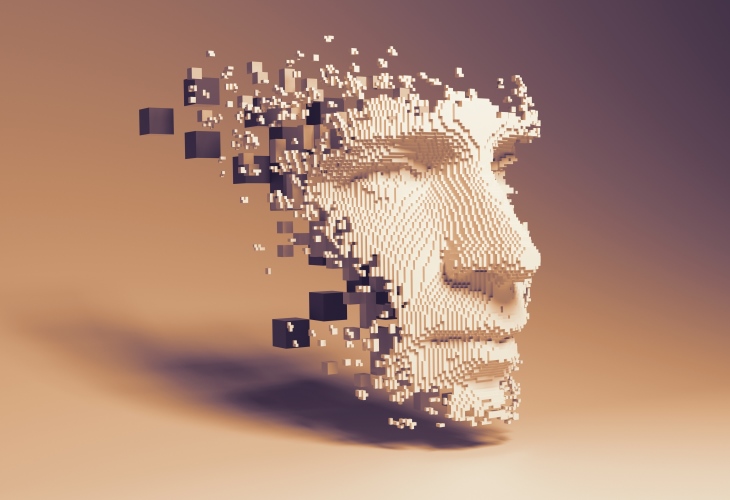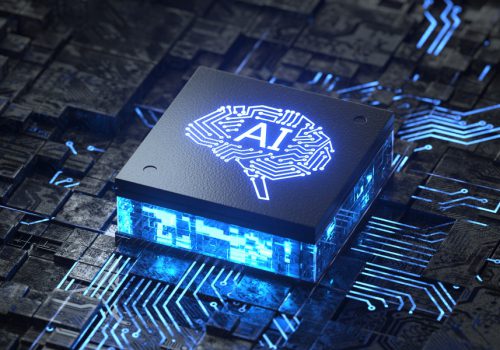The project management floor was once the exclusive territory of caffeine-fueled humans armed with Gantt charts and post-it notes, fighting the good fight to keep projects on time and within budget.
But today, alongside these battle-hardened professionals, you will find a new force rising up to join the ranks. One whose data-crunching chops are far beyond those of mere mortals and whose tireless work ethic never falters, Artificial Intelligence (AI).
From algorithms that predict project slippages before they happen to bots that handle routine communications, AI tools are injecting a hefty dose of machine smarts into project management workflows.
And if you think you are immune to this change because you are not in a technology sector, think again. Gartner estimates that by 2030, AI will claim 80% of the tasks currently hogging a project manager’s Outlook calendar. Project managers across all industries will soon find themselves steering the ship alongside AI co-captains, and those not prepared for such changes might have a much more difficult time.
But what does this Human-AI collaboration look like in the real world? And how can project managers ensure they stay aboard? That is what we will explore in this article.
The Case for AI
Why is this seismic shift happening, and why now? The answer boils down to raw economics and pure, unadulterated efficacy.
According to the Standish Group, an astonishing $48 trillion is pumped every year into projects, yet only 35% of them cross the finish line, waving the flag of success. This leaves behind a vast chasm of unrealized potential that AI promises to help narrow if we can only figure out how to navigate the ‘us’ and ‘them’ in this equation to create a harmonious ‘we.’
KPMG research found that companies that put their chips on AI are witnessing an average of 15% productivity improvement in their projects. That is hundreds of millions, if not billions, of dollars, saved every year for those bold enough to take the plunge.
PMI’s research, “AI Innovators: Cracking the Code on Project Performance,” serves up an additional helping of stats, providing empirical evidence of three invaluable benefits that AI-human collaboration in project management brings to the table:
- Timely Delivery – Companies using AI report delivering a whopping 61% of their projects on time, compared to a lackluster 47% for those sticking to the traditional methods.
- Benefits Realization – Firms utilizing AI-driven tools boast that 69% of their projects realized 95% or more benefits to their business. Compare this to 53% for companies that have not made the AI leap.
- Higher ROI – A commendable 64% of projects from AI-using organizations met or exceeded original ROI projections. This figure stumbles down to 52% for those sticking to older methods.

Understanding the Human-AI Interaction
With a clear and compelling case made for AI, many project managers may feel anxious about where this wave of automation will leave their position. After all, if AI is capable of undertaking most of the heavy lifting, what exactly will project managers be left to do?
But the tug-of-war between man and machine is not the reality of our current situation. According to AI researcher Paul Boudreau, AI is not out to usurp the role of project managers but to act as catalysts that allow for more efficient and effective project delivery. In his post, Boudreau identifies three core areas where AI not only falls short of replacing project managers but indeed requires their expertise for successful implementation:
- Managing Data – First off, AI needs humans to input data, interpret the results, and take action accordingly. Machine learning algorithms will not produce any useful outcomes without structured data. It takes a human—yes, a project manager—to systemize this raw data into something an algorithm can work with.
- Interpreting Results – AI can analyze patterns, make predictions, and even make recommendations based on past events. However, the onus of interpreting these results and implementing decisions rests squarely on the shoulders of the project manager. AI lacks the nuance and context-aware judgment needed to make genuinely effective decisions about a project.
- Collaboration – Project management is not just about tasks and timelines. It is also about people. AI is incapable of getting all the parties involved to work together towards a common goal and create an atmosphere of collaboration. This task falls on the project manager, who must nourish this culture of teamwork in order to achieve success.
In short, the AI-human collaboration in project management is less a battle for supremacy and more of an interdependent relationship. You bring emotional intelligence, complex problem-solving skills, and relationship-building; AI brings data analysis, predictive modeling, and tireless 24/7 operation. In this manner, project managers along with AI will be capable of reaching a new echelon of project management performance. To put things in perspective, here is a glimpse at what this collaboration looks like in practice.
Real-Time Data-Driven Decisions
AI algorithms can sift through terabytes of historical project data to spot patterns and trends, offering predictive analytics that can forewarn your team of potential setbacks before they become full-fledged crises. Meanwhile, the project manager, applies judgment, nuance, and relational tact to smooth out the rough patches.
Improved Resource Allocation
In the traditional project management landscape, budgeting is more art than science. You often base estimates on past projects, educated guesses, or even gut feelings. It is a shaky foundation for a project’s financial structure. AI can turn abstract estimates into informed, reliable budgeting decisions by continually tracking and assessing project costs as they accrue. Managers will bring the big-picture vision and economic sensibilities to ensure these budgets remain realistic, flexible, and aligned with their goals.
Increased Transparency
In many organizations, the lines between teams can be blurry. Information gets lost in translation, leading to confusion and delays that suspend projects further.
AI can help streamline communication by eliminating manual processes, allowing for a transparent view of projects in real-time. By leveraging AI, project managers can quickly and effortlessly keep stakeholders abreast of progress updates without micromanaging each task individually.
Spotting Opportunity and Risk
AI algorithms can monitor the ebb and flow of your project data on a granular scale, alerting you to potential areas of improvement or unexpected risks that could derail the entire project. The project manager then applies your experience, intuition, and foresight to identify which opportunities should be taken advantage of and which risks need to be addressed.
Automated Task Management
AI-driven task management algorithms automate mundane, repeatable tasks, such as monitoring project status updates and progress reports. This frees up your time to focus on project management’s more complex yet often invisible facets, like conceptualizing team dynamics or strategizing long-term objectives.

Human-AI Collaboration in Action
The use of AI in project management is not merely confined to the tech-forward circles of Silicon Valley. In reality, AI is becoming a pervasive force in various industries, from healthcare to construction and beyond. Let us examine some examples of how different sectors can benefit from the power of human-AI collaboration in project management.
1. Risk Prediction in Construction
The construction industry is notorious for its aversion to change. But perhaps the prospect of saving millions of dollars on projects gone awry will be enough to ignite interest for those who resist. That is precisely what AI-driven risk prediction tools are here to do. By combing through data related to previous projects, weather forecasts, labor availability, and countless other sources, these tools can generate an accurate probability assessment for any given project.
2. Superior Resource Management in Agencies
Most marketing agencies operate in hectic environments where time is a scarce resource. The “always-on” culture and the need to juggle multiple clients and projects make it an ideal testing ground for AI capabilities. An AI-driven resource management solution for agencies can make your team’s resource planning woes a thing of the past. With AI’s help, you can ensure that the right people and relevant skills get assigned to suitable projects.
3. Automation of Routine Tasks in Retail
Most retail companies are not exactly bursting with spare personnel to sift through paperwork and other mundane project-related tasks. AI could be the answer to this staffing dilemma. It can help automate routine tasks, such as disbursement of materials, tracking inventory levels, sending notifications, scheduling meetings, and so on. This will allow retail project managers to be more focused on the larger strategic aspects of operations.
The Path to Seamless Integration
What does a roadmap for integrating AI into project management actually look like? Below are some initial steps towards it.
- Training and Adaptation
The first step is to get your human team comfortable with their new AI teammates. This involves training sessions to understand the latest tools and discussing the benefits and limitations of AI in the context of the team’s day-to-day tasks.
Hold regular team meetings and forums for open dialogue, where employees can ask questions, share concerns, and contribute insights into the AI implementation process. Alternatively, you could keep the team updated through email bulletins, summarizing key developments and sharing actionable insights for immediate implementation.
And for those who wish to utilize a more tech-savvy approach, you can generate QR codes directly linked to AI training material. This method enables quick and easy access to essential information, ensuring team members can self-serve on-demand knowledge.
- Start Small, Test, and Iterate
Many organizations struggle to integrate AI into their operations because they aim for an overly ambitious rollout. Implement AI solutions in a controlled, manageable environment. Coach your team on the basics and let them get used to working with AI prior to introducing it in a live project setting. This will allow you to troubleshoot any potential issues, iron out bugs, and ensure everyone is up-to-date on best practices without the risk of jeopardizing your whole project.
And do not go all-in right away. Once you are confident that the AI tool is reliable and your team is comfortable using it, you can start integrating it into live project settings. Begin with low-stakes projects where the risks of failure are minimal, but the learning opportunities are substantial.
As you gain experience and confidence, you can gradually introduce AI into more complex and highstakes projects. This progressive approach will give you valuable insights into the true capabilities and limitations of AI in the context of your project environment.
- Stay Updated on the Latest News
In a realm as dynamic as AI, the landscape is perpetually shifting. New tools are being developed, existing ones are being improved, and paradigms are evolving. Constant vigilance is essential to keep pace with this rapidly changing environment.
Make it a habit to familiarize yourself with the latest trends, tools, and case studies. Engage with industry thought leaders, participate in webinars, and attend conferences. But be discerning and only rely on the most reliable and relevant sources.
And ethical updates are just as important. As AI grows more intelligent, the discussion around ethics and morality grows more pressing. Keep your fingers on the pulse of this conversation to ensure your implementation of AI adheres to the highest ethical standards.
- The Road Ahead
The dynamism of human creativity and intuition, combined with the precision and efficiency of AI, promises a future where project management is more productive, cost-effective, and results-oriented than ever before.
Major corporations and nimble startups alike are already scripting success stories with the integration of AI in their project management strategies. From executing high-risk initiatives to managing the nitty-gritty of day-to-day tasks, AI is proving to be a formidable partner in driving project success.
But, as with any new territory, there will be bumps and potholes on the path to true AI-human collaboration. The key is to step into this brave new world prepared for change and uncertainty–but also aware of the tremendous potential that awaits those who persevere.









